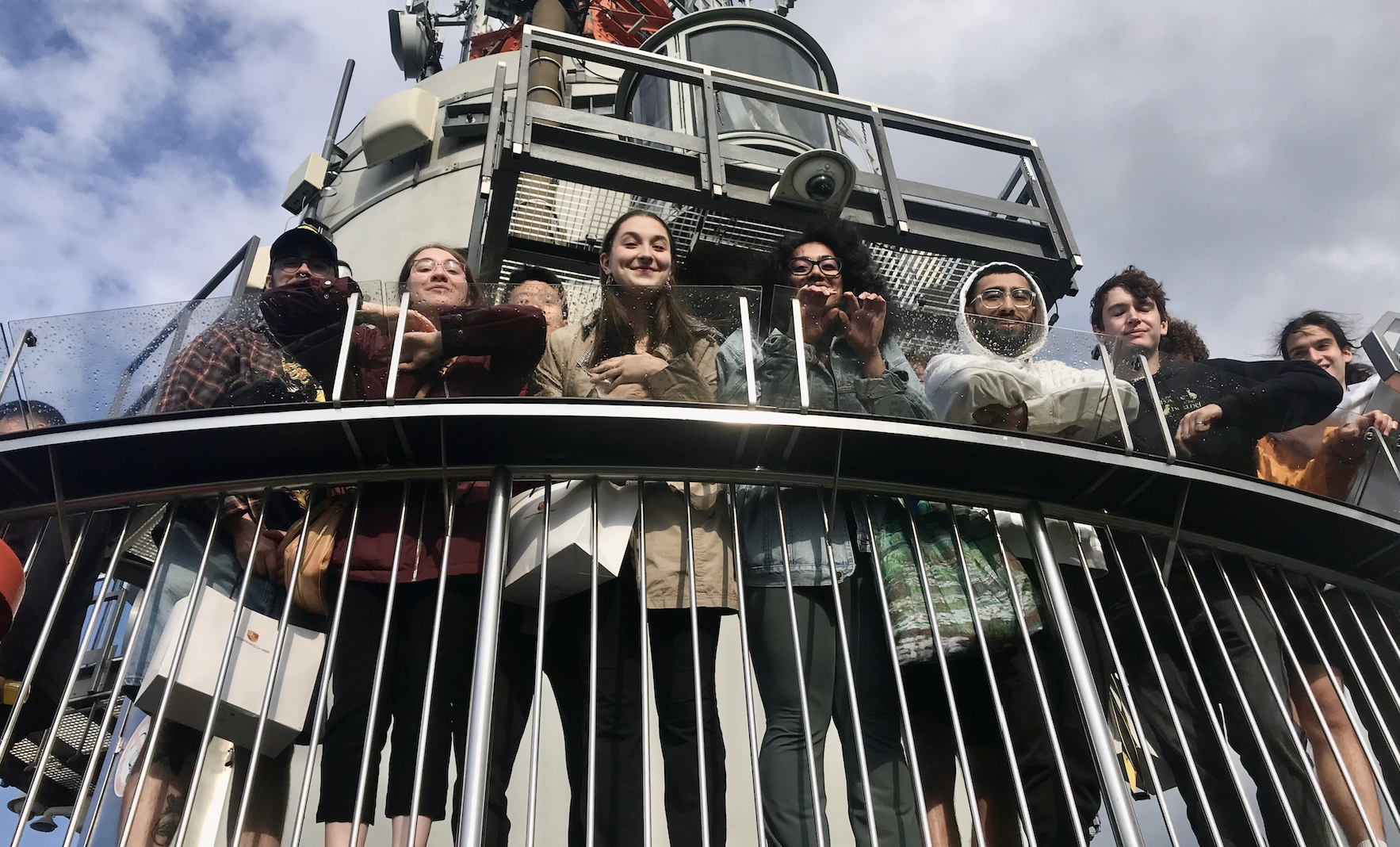WHAT MAKES EUROTECH ENGINEERS STAND OUT?
The employer does not need to provide additional training. The combination of engineering skills and knowledge of the German language and cultures will allow you to understand the ways of doing business in both cultures – and position you well for international careers in other regions and cultures as well!
If the company is foreign-based and operating in the US, the EUROTECH engineer:
- Will understand the German approach to business and can help the company become more successful in the American market
- Can communicate with engineers from the parent company and read its blueprints and other documents
- Can serve as a liaison between the parent company and the US subsidiary
- Can be sent abroad for futher training or special projects at the parent company
If the company is American with subsidiaries abroad, the EUROTECH engineer:
- Can facilitate the company’s success in global markets
- Can communicate with the local workforce and business contacts
- Will be aware of specific requirements of the global market (such as environmental laws, safety issues, privacy issues, ways of communicating, etc.)
- Can serve as a liaison between the company and engineers abroad
WILL I GET A JOB WHEN I GRADUATE?
For our graduates the question is more often: “What company will make me the best offer?” There is industry demand for EUROTECH engineers, in the US and abroad. Our office constantly receives inquiries from companies and recruiting agencies about recent graduates of the program.
WHAT COMPANIES HIRE EUROTECH ENGINEERS?
Almost any company that employs engineers is interested in hiring EUROTECH graduates. Most companies compete in a global environment and desire the unique attributes of our engineers.
Recent graduates have gone to work for:
- Bosch, the German-based manufacturer of electric car components and appliances, and its subsidiary in South Carolina
- Bayer, the pharmaceutical giant whose parent company is located in Leverkusen, Germany
- Procter and Gamble, the American based chemical leader with international facilities
- Trumpf, a machine tool company based in Stuttgart, Germany with 27 subsidiaries.
- PILZ, a safety automation company located in Nellingen, Germany
- BMW, the automotive giant, headquartered in Munich
- Plus many others

WHY GERMANY?
- There are more than 1000 US companies with subsidiaries in Germany, more than 1100 German companies with subsidiaries in the US, and 50+ companies with ties to Connecticut alone.
- Outside NAFTA, Germany ranks third (after China and Japan) among the countries with which the US trades (fifth, including NAFTA countries Mexico and Canada)
- For the Eastern European market, German is often the language of commerce
- German ranks ninth among world languages, with approximately 100 million people for whom it is their first language
- German industry is export-oriented; therefore, engineers are needed who can facilitate expansion in global markets
HOW DOES EUROTECH PREPARE ME FOR THE GLOBAL MARKETPLACE?
- UCONN’s School of Engineering currently offers 12 undergraduate engineering majors
- From the outset of your academic program, the study of German is linked to your interests in engineering
- Starting in your first semester, you will learn how to present and discuss projects in German!
- The German Studies major gives you in-depth knowledge of the language, culture and history of Germany in the context of Europe
- You participate in a five to six-month internship in Germany during your fourth year
- Internships, guest lectures by industry representatives, plant visits and study trips to Germany will afford many opportunities to establish personal contacts with future employers and network amongst peers
ISN’T ENGINEERING BY ITSELF ALMOST TOO MUCH TO HANDLE?
EUROTECH is a challenging program; however, if at any point it becomes too difficult to continue with both degree programs concurrently, the German Studies program offers a number of strategies for catching up.
For example:
- Summer programs, such as the German summer schools in the US through which you may take two or more full courses within six weeks
- German courses offered by the Goethe Institute in all major US cities and in Germany
- Selected study abroad programs offered at UConn that allow you to take German language, literature, and culture courses at a German university
EUROTECH students form a tight-knit group that offers support in the sometimes anonymous atmosphere of a big state university. You will have plenty of direct interaction with the faculty, as all German Studies courses are small.
WHAT KIND OF FINANCIAL AID CAN I GET DURING MY TIME AT UCONN?
You are eligible for all scholarships and other forms of financial assistance offered by the School of Engineering and the College of Liberal Arts and Sciences. You may be eligible for industry funds in the fifth year.
We are working to establish an industry funded scholarship system.
In addition, EUROTECH students:
- Receive a salary during internships
- Are eligible for generous scholarships through the Baden-Württemberg Exchange Program (part of the Connecticut Baden-Württemberg sister-state agreement)
- In most cases, studying abroad actually saves you money!
HOW DO I ENROLL IN EUROTECH?
Apply to the College of Engineering and enroll in the first semester German Studies course (GERM1001). Submit an additional degree form during the first two full years of German Studies.
DO I NEED TO KNOW GERMAN BEFORE I START?
No, you can start with the first semester German course, which assumes no prior knowledge of German. However, if you have had German before, we can place you at a higher level that will save you some course work.
IS EUROTECH FUN?
Yes! You will be able to participate in all the activities that the College of Engineering and the German Studies program organize for their students.
Among these are:
- Film series and other cultural events
- Guest lectures by industry representatives
- Study trips to Germany, usually supported through grants
- Plant visits to companies in the area
- Small classes
- Enthusiastic faculty
- Contacts with the German exchange students on campus



